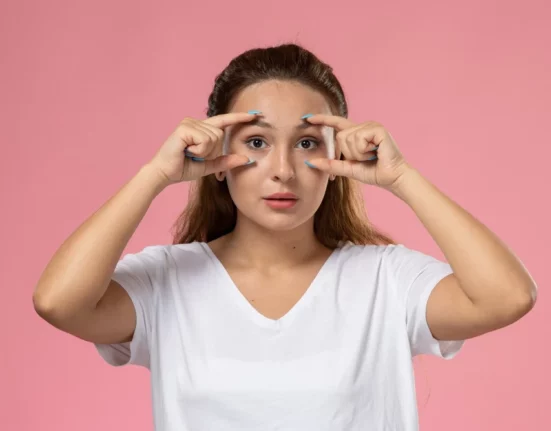Most people are aware that their medical history, along with what they eat and how much they weigh, can create a risk of getting Type-2 diabetes. But what they are unaware of is that such a health problem can interfere with their normal sleep routine. Not only sleep can affect the blood sugar levels but it is also true the other way round. Apart from the usual problems associated with getting a good night’s rest such as sleep apnea, hypos at night, and being overweight, having high blood sugar levels can also have a similar impact.
People who have blood sugar levels that are excessively high or low can experience tiredness throughout the day. Insomnia and lethargy are two common symptoms of blood sugar though it is not necessary that people who are suffering from sleeplessness and lethargy are diabetic.
How Does Diabetes Have Impact on the Ability to Sleep?
Several research studies over the years have established a clear connection between diabetes and sleep problems. Sleep disturbance not only indicates the difficulty in falling asleep but also staying asleep or sleeping too much. While diabetes does not necessarily mean that your normal sleeping habits will be impacted, such a health condition is likely to interfere with your night’s rest. Some of the symptoms include –
- People with high blood sugar levels are prone to frequent urination. This will impact the deep sleep making the person get up frequently for using the bathroom.
- When the body contains extra glucose, it draws excess water from the tissues. This will make you feel dehydrated forcing you to get up in the middle of your sleep for a glass of water.
- The common symptoms of dizziness, sweating, and shakiness can affect your normal sleep routine.
Different Sleep Disorders and Their Connection With Diabetes
Although tossing and turning may be a common symptom among people with diabetes problems, there might be a separate medical condition that might be breeding underneath. Some of the commonly experienced sleep disorders among people are mainly the underlying cause of diabetes.
Insomnia
This sleep disorder is characterized by trouble falling and staying asleep. You are more at risk of experiencing insomnia if you have high glucose levels with high stress. Insomnia patients are known to experience several kinds of sleep disruptions, like –
- Problem falling asleep;
- Difficulty in staying asleep;
- Waking up early;
- Waking up tired
Taking any OTC medication won’t solve the issue. Instead, try to identify the root cause of the problem, such as experiencing any family issues or working in a high-stress environment. Seek medical advice from a healthcare practitioner to determine and cure the root cause of such defects.
Obstructive Sleep Apnea
This is the most common disorder among people with diabetes problems, with almost 86 percent of people with diabetes having obstructive sleep apnea. The OSA is a medical condition that is characterized by frequently interrupted breathing while sleeping. People with such problems experience fully or partially blocked airways. Such a sleep disorder is harmful to both sleep quantity and sleep quality.
Most people having OSA experience frequent awakenings with fragmented and restless sleep. In addition, it also develops a higher risk of getting Type-2 diabetes and an increased risk for cardiovascular problems.
Nocturnal Hypoglycemia
Low glucose levels in the blood, or hypoglycemia, can have an adverse impact on the quality of your sleep. People who are taking blood sugar medications or insulin might be at risk of getting low blood sugar. Overnight fall of blood sugar levels can disrupt your usual sleep pattern and make it difficult for you to wake up in the morning and feel tired throughout the day. One of the most common symptoms of nocturnal hypoglycemia is waking up sweating in the middle of the night.
Restless Leg Syndrome
Also known as the Ekbom Syndrome, this sleep disorder is characterized by uncomfortable and unpleasant feelings in the legs, causing the person to move the legs to reduce such sensation. The sleeper may experience a burning sensation or as if insects were crawling over the legs. Such a syndrome may also be an indication of the presence of peripheral neuropathy. Such a condition is often associated with a lack of diabetes control which can be treated by improving the blood glucose levels.
Post Meal Lethargy or Daytime Tiredness
A feeling of tiredness throughout the day, particularly during the morning period and after meals can often be a result of high blood sugar levels. If you happen to experience such problems, get a blood sugar test done to check any correlation between the blood sugar count and such feelings of tiredness. This could probably be a result of low blood sugar levels, especially if you are taking insulin or is at risk of having hypoglycemia.
Some Common Causes of Sleep Disruption
The dysfunction of circadian rhythm due to the underlying cause of diabetes can also disrupt the metabolic hormones. Some of the common symptoms associated with sleep disruption problems include –
Headaches: Both low and high blood sugar count can develop headache problems making it hard to sleep.
Sweating: This is a sign of low blood sugar levels that can prevent you from falling asleep.
Irritability and Anxiety: Low levels of blood sugar can trigger irritability and anxiousness. This may be a prime cause of restless sleep and insomnia. Such people may also experience a racing heartbeat with dizziness that interferes with their ability to fall asleep.
Increased thirst: Both hypoglycemia and hyperglycemia is known to contract dehydration problems causing you to wake frequently and difficult to fall asleep.
The Bottom Line
If you are experiencing persistent sleep problems, consider testing your blood sugar levels as it might be the underlying cause of such an effect. In such a situation, you need to consult a healthcare practitioner to help you effectively manage and prevent the recurrence of such problems and keep your blood sugar count to normal. It may take about a week or two to observe the changes, so make sure to follow a regular routine.





